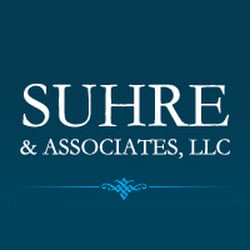
Primary plaintiff Jeffrey Scott Ridenour filed the initial Sterling class action lawsuit in January of 2015. Ridenour claimed the defendants failed to provide him with a legally mandated copy of his background report, as well as a summary of his legal rights under the Federal Fair Credit Reporting Act (FCRA). Ridenour also alleged that Sterling Infosystems did not acquire all of the information required for employment-related consumer reports. “This practice of utilizing and providing incomplete reports is not a reasonable procedure designed to assure maximum possible accuracy concerning the job applicant or employee about whom the report relates,” the current Sterling FCRA class action lawsuit states.
To avoid costly litigation and the unpredictability of class action lawsuit decisions, Sterling Infosystems settled the class action lawsuit for violating the FCRA. Anyone who went through a background check issued by Sterling within a court declared time frame might be eligible for cash compensation from the FCRA class action settlement.
Ridenour amended the original class action lawsuit to include language that Sterling “verified” he was convicted of a crime, when in fact, Sterling used incomplete and inaccurate information to make the assessment. The damage caused by the incorrect addition of Ridenour’s criminal record caused the plaintiff lost wages.
What You Need To Know
According to class counsel, the Sterling Infosystems FCRA class action settlement has two classes. The Virginia Opt-In Class includes “All natural persons who were the subject of a consumer report sold by Sterling on any platform of Sterling except ESIQ to a third party from February 15, 2010 through October 31, 2016, who had a primary residential address in the Commonwealth of Virginia that was provided to Sterling in requesting such report, whose consumer reports contained at least one criminal record, who affirmatively opt in and complete a claim form certifying that their consumer report(s) was/were incomplete or not up to date, and (v) where no notice was sent under 15 U.S.C. § 1681k(a)(1).”
The Automatic Payment Class includes: “All natural persons residing in the United States (including all territories and other political subdivisions of the United States) (i) who were the subject of a consumer report sold by Sterling on any platform of Sterling to a third party from January 29, 2013 through October 31, 2016, (ii) whose report contained a criminal record, (iii) who then directly or indirectly disputed such criminal record contained in their consumer report with Sterling, and (iv) whose dispute resulted in an amendment to the criminal record of their report.”
The potential award varies depending on the number of claims filed in Virginia. The deadline for opting into the Virginia class is June 6, 2017. Members of the Automatic Payment Class are not required to submit a claim form. Ridenour and Halem, et al. v. Multi-Color Corp. and Sterling Infosystems Inc., et al., Case No. 2:15-cv-00041, in the U.S. District Court for the Eastern District of Virginia has scheduled a final hearing on July 19, 2017. Visit the class action settlement websitewww.SterlingVirginaSettlement.com to learn about updates.


